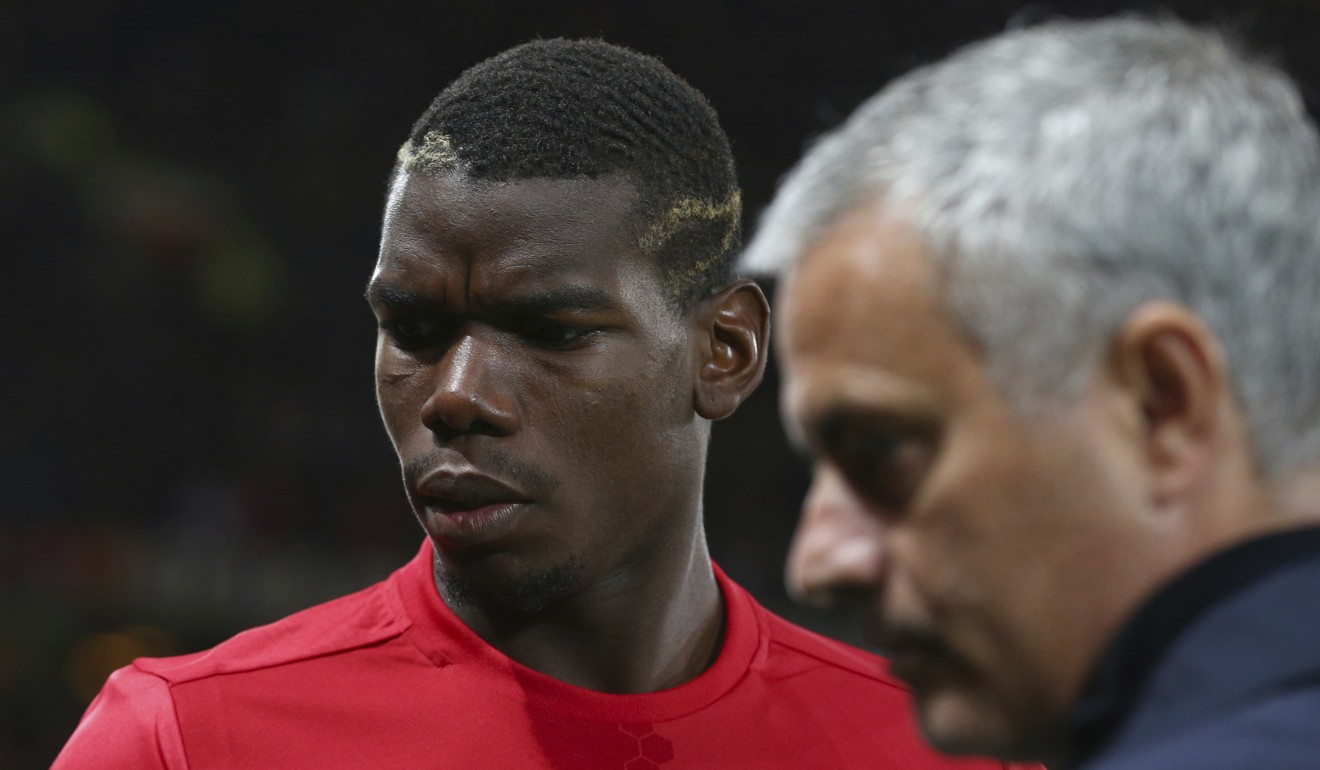
Manchester United sacking Jose Mourinho highlights inevitable end for all managers and cost of mid-season change
- Portuguese expected to receive huge pay-off for leaving Old Trafford
- Studies suggest changing coaches part way through the season is no guarantee of success
Everyone by now must know that Jose Mourinho knew his sacking from Manchester United was inevitable.
He has known for more than 40 years.
His own father, a coach in their native Portugal, was dismissed from his job on Christmas Day when Mourinho was nine or 10 years old, when his father got a phone call in the middle of lunch, he recalled in a 2004 interview.
“I know all about the ups and downs of football. I know that one day I will be sacked.”
Mourinho senior’s Rio Ave side had lost in the days leading up to Christmas and the sack beckoned.
It was the same for his son after Manchester United rolled over at Liverpool at the weekend.
Just as it had been for Mark Hughes when his Southampton side drew with United and the Welshman was dismissed.

The Old Trafford club, in their last attempt to rebuild following the retirement of an all-conquering Scottish manager, often changed manager in December but this is the earliest into a season that they have parted ways with a manager since Ron Atkinson was dismissed in November 1986.
What happened next is history.
Alex Ferguson was brought in from Aberdeen and stayed for 26 seasons, winning everything along the way and turning the club into the biggest in the world.
That could have all ended very differently, of course. It has not been forgotten that Ferguson’s tenure almost did not make it into the 1990s, “saved” by a Mark Robins goal and subsequent run to lift the FA Cup.
Coaches know they face the sack. There are not many who go through their careers avoiding that dreaded call to see the chairman.
A cursory look at the Coaches’ Voice website, where professionals tell their story in their own words, is filled with “not if but when” in terms of the axe.
The belief everywhere, just at Old Trafford now, is that a new face in the dugout will change things for the better.
An increasing number of studies suggest this might not be the case.
One 2008 study – The effects of managerial turnover: evidence from coach dismissals in Italian soccer teams– found that it had neither a positive or negative effect.
This agreed with an earlier look into Belgian football.
A 2002 look at decades of English football – the impact of managerial change on team performance in professional sports – went further, suggesting clubs who changed their managers mid-season often performed worse.
The number of studies has increased in recent years, as have the books on football that are built on statistical analysis and crunching the numbers. Football is big business and burning through bosses costs money.
“New manager bounce”, the pick up in results after changing managers, has been explained as temporary by a 2009 study (What is the impact of changing football manager?) with the honeymoon period lasting between 12 and 18 games before evaporating.
Some studies have gone so far as to say results would have improved anyway, even with the same manager in place.
That rarely happens, though, as football looks towards the next game, especially if teams are at threat of relegation.
Not a season goes by without someone losing their job and in some leagues such as the Chinese Super League mid-season turnover often takes place at a majority of clubs.
The managerial merry-go-round is at stiff odds with the curbs on player movement that have been put in place.
While there was opposition to the transfer window when it was put in place in 2002, as a way to appease the European Union’s desire for freedom of movement for footballers, it has become accepted to the point where English Premier League managers called for it to end before the start of the season so that squads were settled.
The transfer market is something Fifa is looking at tightening up further, but managers are paid similar sums and it is a free for all, while their pay-offs are equally eye-watering.
Mourinho has been rumoured to be getting a US$19 million pay-off on top of the reported US$27 million a year he has been getting as salary.
Several million reminders that the current system does not work, so why not a transfer window for coaches, too, where clubs could only appoint permanent bosses in pre-season and only replace them with a caretaker during the season?
That might make clubs think more rather than throw money at the problem. It might also see an opportunity for younger coaches to be promoted from within, at least in the caretaker role, much like the transfer window has given young players more chances.
United may have inadvertently stumbled on to this but you have to feel that is more luck than judgment based on their recent behaviour– don’t forget David Moyes was given a contract until July 2019 but lasted barely six months and the underperforming Mourinho was handed an extension in January.
If they don’t get the next appointment right, then surely the suits are for the sack.
As for Mourinho, who pointedly refused to make a home in Manchester in his two-year stay, there are plenty of hotels in China.

